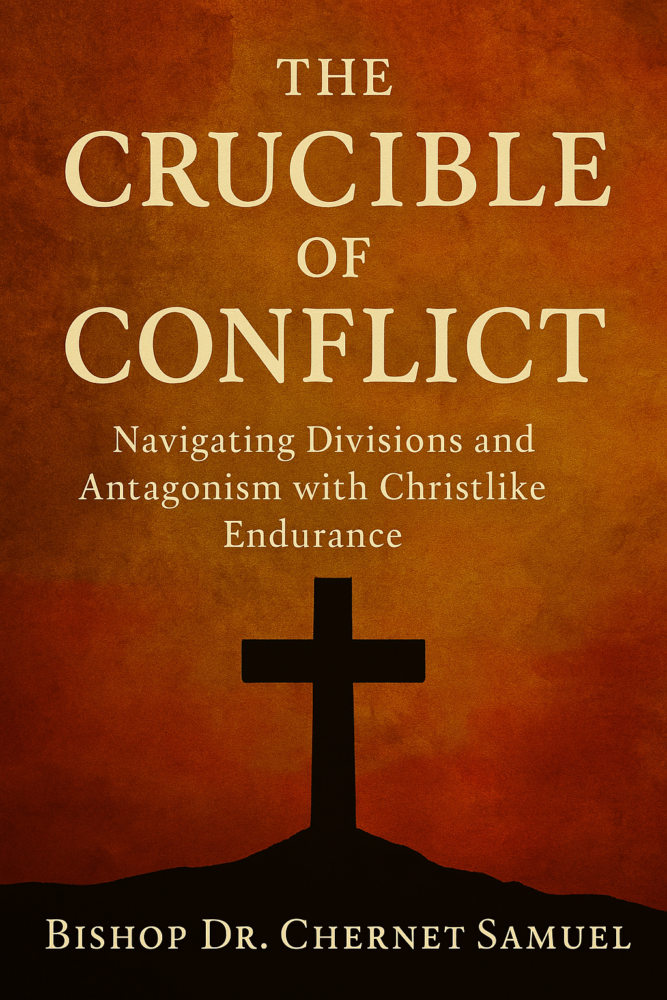

In the title The Crucible of Conflict, the word crucible powerfully symbolizes the intense, refining nature of church leadership amid division and strife. Traditionally, a crucible refers to a vessel used to melt metals at high temperatures, purifying and reshaping them in the process.¹ Metaphorically, it denotes a situation of severe trial or testing that reveals and transforms character.² In the context of ministry, conflict acts as a crucible in which the authenticity of leadership is tested, motives are exposed, and deeper spiritual maturity is forged. Such moments have been described as developmental crucibles—formative experiences through which individuals are shaped for long-term leadership effectiveness.³ Others have noted that these crucibles often become transformative turning points, reshaping one’s identity and deepening clarity of purpose.? Thus, the “crucible of conflict” is not merely a place of pain—it is a forging ground where resilience, wisdom, and spiritual clarity are born. It is a melting pot of opposing forces—such as tradition versus reform, or truth versus unity—where, through providential shaping, new pathways of leadership often emerge.